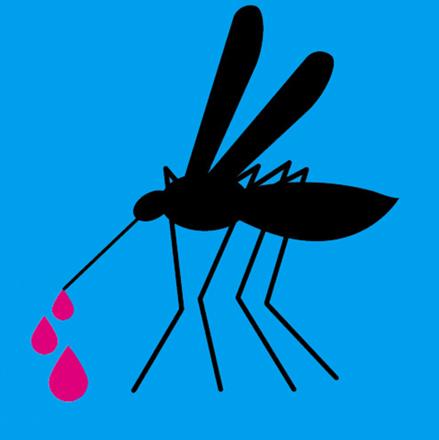You are here
Foetal DNA tests prove highly accurate, with exceptions
By Reuters - Apr 07,2015 - Last updated at Apr 07,2015
CHICAGO — A Roche blood test to screen foetuses for Down syndrome worked far better than standard prenatal screening tests in younger, low-risk women, US researchers recently said, setting the stage for more widespread use.
The new study, published in the New England Journal of Medicine, is the largest to show the tests are accurate in even low-risk women. But experts warned that women who test positive still need to confirm the result through more invasive diagnostic testing such as amniocentesis, especially if they would consider terminating a pregnancy.
“This is a great test for detecting Down syndrome but it doesn’t detect everything, it isn’t diagnostic, and it doesn’t always work to provide a result,” said Dr Mary Norton of the University of California, San Francisco.
Prior studies have shown such foetal DNA tests, which measure DNA fragments from the placenta circulating in the mother’s blood, are highly accurate at detecting Down syndrome and two other chromosomal abnormalities in high-risk women, typically those over the age of 35.
Several physicians’ organisations have supported use of the newer cell free foetal DNA tests over the standard screening in older, high-risk women.
Norton and colleagues tested nearly 16,000 women who had an average age of 30. The researchers compared Roche’s Harmony test to standard prenatal screening for Down syndrome — which relies on biomarkers in the blood and a foetal ultrasound — in the same group of women.
The Roche test identified all 38 cases of Down syndrome compared with 30 detected by standard screening. The false positive rate for the new foetal DNA test was 0.06 per cent of the study population versus 5.4 per cent for standard screening.
But there were still nine false positive results in the group that got cell free foetal DNA screening.
In addition, in nearly 500 women the foetal DNA test was not able to deliver any result because there was not enough foetal DNA in the pregnant women’s blood. Further testing, however, showed that some 2.7 per cent of foetuses had chromosomal defects, including those that could not have been detected by the new foetal DNA technique.
More than 1 million foetal DNA tests have been performed since 2011. One of their advantages is that if women test negative, they can avoid having an invasive diagnostic test, which can cause miscarriages in roughly 1 in 600 women.
But the newer tests are not regulated by the US Food and Drug Administration (FDA), and companies are heavily promoting their performance in ways that may mislead patients, critics say.
In a letter published in the New England Journal of Medicine, Ankita Patel and colleagues from Baylor College of Medicine and the Chinese University of Hong Kong warn that women should not decide to terminate pregnancies based on such screenings alone.
They cited their own work that collected data on 307 women who screened positive on foetal DNA tests. The results included 56 false positives, meaning the child did not have Down syndrome or the two other common abnormalities (trisomy 13 and 18) captured by the tests.
In some cases, women had already scheduled an abortion pending amniocentesis results, a test given between 15 and 20 weeks of pregnancy. Even when that diagnostic proved the child did not have those abnormalities, some women questioned whether the screening result was more reliable.
“They think it is a diagnostic test because it’s genetic,” Patel said of the foetal DNA tests.
Confusion among doctors
Another reason for the confusion is the rapid introduction of this new technology. Many doctors are still just learning about it, said Dr Michael Greene, the chief of obstetrics, Massachusetts General Hospital in Boston, who was not involved in the research.
He also points to companies’ aggressive marketing of their tests on the Internet. Ariosa Diagnostics, acquired by Roche in January, says its Harmony test for foetal chromosomal abnormalities offers “clear answers to questions that matter”, promising “accurate results from as early as 10 weeks of pregnancy”.
Rival Sequenom Inc. says on its website that it offers unambiguous results: “There’s no room for maybe.” Other companies offering such tests include Illumina and privately held Natera.
Greene said many women are not aware that these tests are not diagnostic and company disclaimers are not easy to find.
Both Sequenom and Ariosa said they recommend healthcare providers counsel their patients that the screening test is not a replacement for a diagnostic test.
The FDA is weighing whether to regulate such tests. Patel believes the oversight might help because the tests “would have more disclaimers so women understand what they are getting into”.
Related Articles
Babies, as every mom knows, tend to arrive on their own, often mysterious time schedules, but what if there were a cheap way to predict a ba
BALTIMORE — When scientists in Brazil suspected a link between a troubling upswing in a birth defect called microcephaly and the mosquito-bo
Veterinarian When our furry friends become pregnant, changes to their bodies and behaviour can be challenging.



















